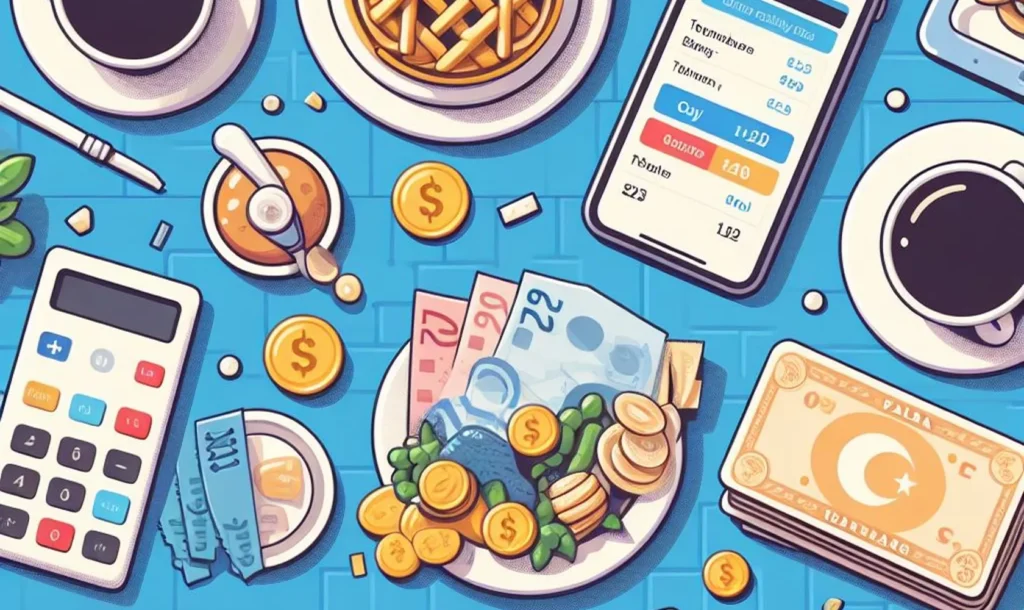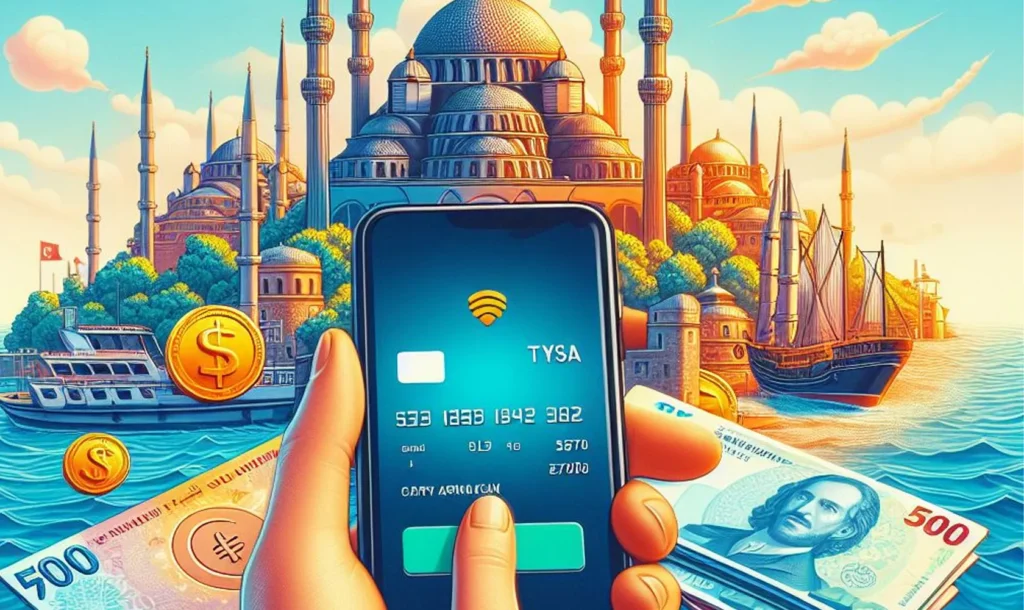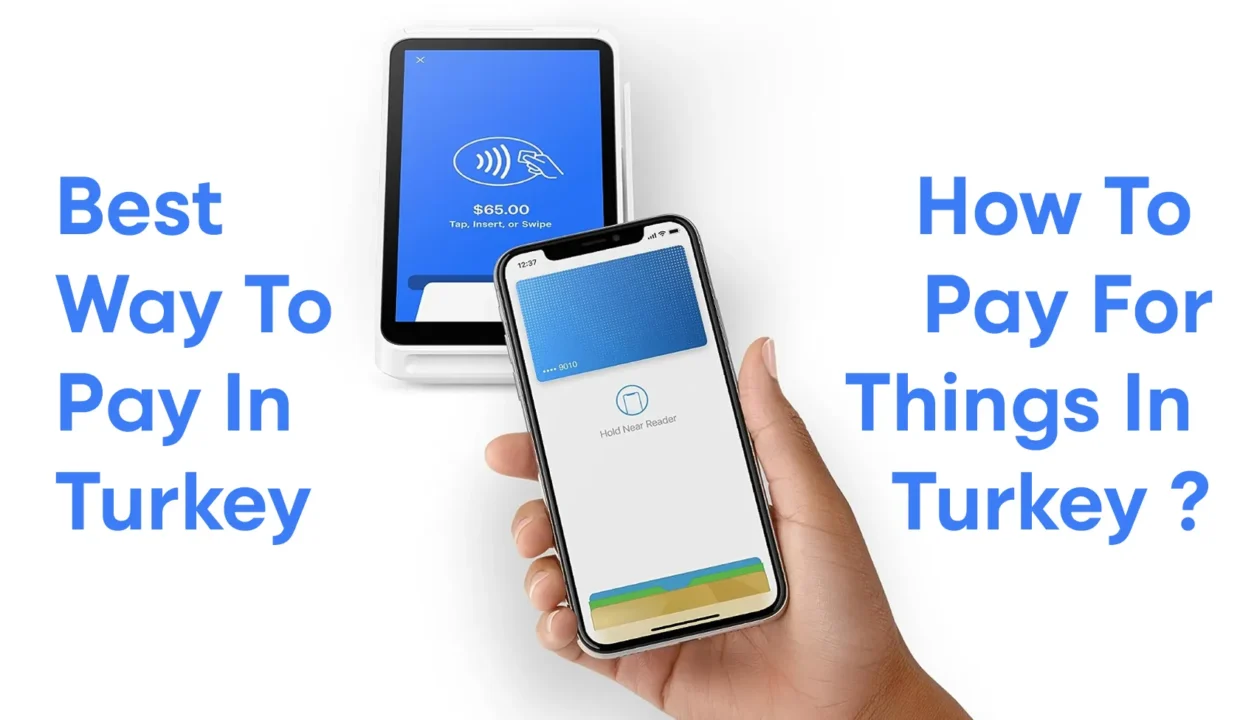How to Pay for Things in Turkey? Best Way to Pay in Turkey (Contactless vs Cash)
Navigating Payments in Turkey: Cash, Contactless, and Beyond… Turkey offers a vibrant mix of traditional and modern experiences, and this extends to its payment methods. While bustling city centers embrace contactless payments, charming bazaars might still rely on good old-fashioned cash. This article equips you with the knowledge to navigate payments in Turkey, whether you’re a seasoned traveler or a first-time visitor.
The Rise of Contactless Payments
Turkey has seen a significant surge in contactless payments in recent years. Visa, Mastercard, and debit cards issued through local banks like Garanti BBVA and İşbank are widely accepted, particularly in larger stores, restaurants, and tourist areas. This makes it convenient and secure to pay by simply tapping your card or phone against the payment terminal.
Benefits of Contactless Payments:
- Speed and Convenience: Contactless payments are significantly faster than cash transactions, keeping queues moving and saving you valuable time.
- Security: Chip-and-PIN technology adds a layer of security compared to swiping your card. Additionally, contactless transactions typically involve lower amounts, minimizing potential losses.
- Hygiene: In a post-pandemic world, contactless payments minimize physical contact with surfaces.

Using Contactless Payments in Turkey:
- Look for the Symbol: Most payment terminals will display a contactless symbol (waves or four circles) indicating contactless payments are accepted.
- The Tap and Go Process: Simply hold your card or phone near the terminal for a few seconds until you hear a beep or see a confirmation message.
- PIN Verification: For larger transactions, you might be prompted to enter your PIN for additional security.
Cash Still Reigns Supreme in Certain Scenarios:
Despite the rise of contactless payments, cash remains a crucial part of the Turkish payment landscape. Here’s when you might need some Turkish Lira (TRY):
- Smaller Purchases: Street vendors, small shops, and local markets often prefer cash for smaller transactions.
- Off the Beaten Path: Venturing outside major cities and tourist areas might lead you to places without contactless payment infrastructure.
- Transportation: While some metro systems and public buses accept contactless payments, some still rely on tokens or paper tickets purchased with cash.
- Bargaining: Cash can be your friend when bargaining at bazaars and flea markets, a common practice in Turkey.
Tips for Using Cash in Turkey:
- Exchange Rates: Always exchange your currency at reputable exchange offices or banks. Avoid street money changers, as rates might be less favorable.
- Carry Smaller Denominations: Having a mix of smaller bills (20 TRY, 50 TRY, 100 TRY) is helpful for daily purchases and bargaining.
- Be Mindful of Counterfeits: While uncommon, it’s always a good idea to check the authenticity of larger denomination bills (200 TRY, 500 TRY) you receive.

Alternative Payment Methods:
While less common than cash and contactless payments, a few other options are worth mentioning:
- Mobile Wallets: Apple Pay and Google Pay are slowly gaining traction in Turkey, particularly among younger demographics. However, their acceptance is still limited compared to contactless cards.
- QR Codes: Some businesses, particularly smaller shops and restaurants, might display QR codes you can scan with your phone to pay through online payment platforms like Papara or Paycell.
Choosing the Right Payment Method:
The best payment method in Turkey depends on the situation. Here’s a quick guide:
- For most daily transactions in cities and tourist areas, contactless payments are the way to go.
- Carry some Turkish Lira for smaller purchases, off-the-beaten-path travel, bargaining, and situations where contactless payments aren’t accepted.
- Mobile wallets and QR code payments are still in their early stages of adoption, so consider them bonus options if available.
Additional Tips:
- Inform Your Bank: Before traveling, notify your bank about your trip to Turkey to avoid any issues with using your cards abroad.
- Check Fees: Some banks might charge foreign transaction fees for using your card overseas. Consider getting a travel card with no foreign transaction fees.
- Beware of Dynamic Currency Conversion (DCC): When paying with your card, you might be offered the option to pay in your home currency. This typically involves a less favorable exchange rate, so always choose to pay in Turkish Lira.
Understanding Turkish Banks and ATMs:
- Major Banks: Garanti BBVA, İşbank, Akbank, Ziraat Bank, and Yapı Kredi are some of the leading banks with ATMs widely spread across the country.
- ATM Fees: Be aware of potential ATM withdrawal fees, both from your home bank and the Turkish bank operating the ATM. Consider using ATMs affiliated with your home bank network for lower fees.
- Daily Withdrawal Limits: ATMs in Turkey might have daily withdrawal limits. Check with your bank beforehand and consider spreading withdrawals across multiple ATMs if necessary.
Travel Cards vs. Debit Cards:
- Travel Cards: Prepaid travel cards loaded with your home currency can be a convenient option. They offer peace of mind by limiting potential losses and can help you budget your trip expenses. However, exchange rates might be less favorable compared to using debit cards directly.
- Debit Cards: Using your debit card directly for ATM withdrawals and contactless payments can be cost-effective, especially if your bank offers no foreign transaction fees. Just ensure you have sufficient funds in your account and notify your bank about your travel plans.
Safety Measures for Using Cards in Turkey:
- Chip and PIN Security: Always opt for chip-and-PIN transactions whenever possible. This adds an extra layer of security compared to swiping your card.
- Monitor Your Accounts: Regularly monitor your bank accounts online or through mobile apps to identify any suspicious activity during your trip.
- Inform Your Bank About Lost or Stolen Cards: Immediately contact your bank if your card gets lost or stolen. Most banks offer emergency card replacement services.

Haggling and Bargaining:
- Cash as Leverage: While contactless payments are convenient, cash can be your bargaining chip when shopping at bazaars or flea markets. Vendors might be more open to negotiating a better price if you’re paying with cash.
- Respectful Negotiation: Haggling is a cultural practice in Turkey, but always approach it with respect and a smile.
Exploring Local Payment Apps:
- Limited Acceptance: Mobile wallets like Apple Pay and Google Pay haven’t yet achieved widespread adoption in Turkey.
- Emerging Options: Local payment apps like Papara and Paycell are gaining traction, particularly among younger demographics and tech-savvy individuals. These apps often require a Turkish bank account for registration, limiting their accessibility for foreign visitors.
Tipping in Turkey:
- Not Mandatory: Tipping is not mandatory in Turkey, but it’s a common way to show appreciation for good service.
- Customary Amounts: A small tip of 10% or rounding up the bill is considered appropriate in restaurants. For other services like taxis or porters, a few lira is enough.
- Cash Preferred: While some restaurants might accept tips on your card, cash is still the preferred method for tipping in Turkey.
By understanding the different payment options, fees, and cultural nuances, you can navigate payments in Turkey like a seasoned pro. Embrace the convenience of contactless payments for everyday transactions, but keep some cash handy for essential situations and a chance to experience the art of bargaining. Remember, a little planning and cultural awareness go a long way in ensuring a smooth and enjoyable financial experience on your Turkish adventure.


